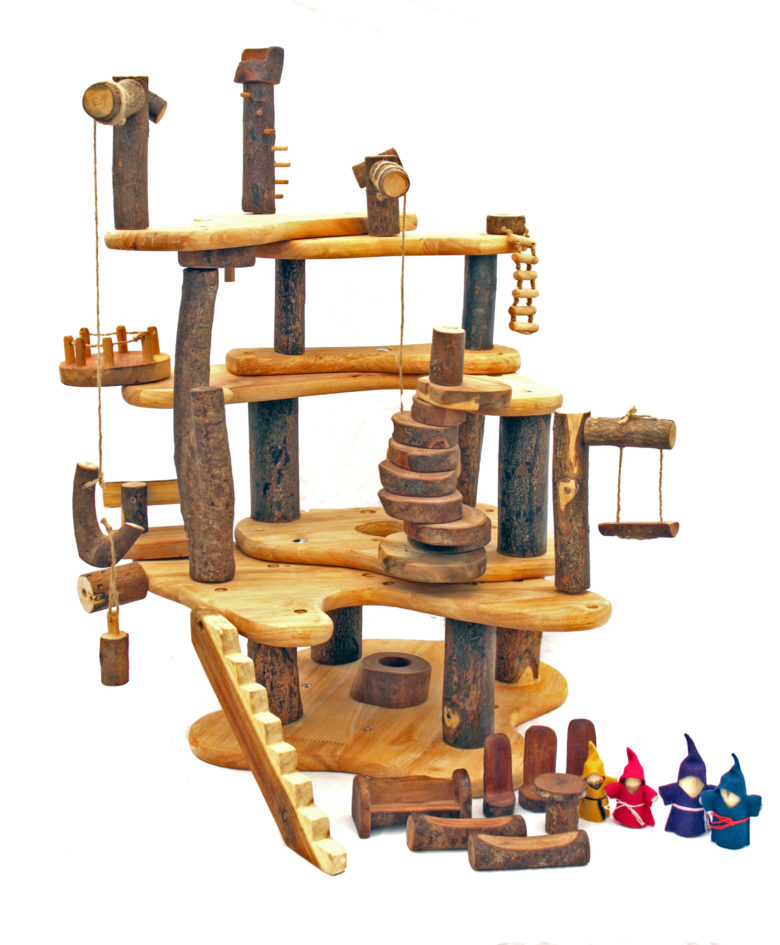HELLO FRIENDS!!!! I know I have been gone for a long time since my last interview, but this one was definitely worth the wait. Today I’m talking with my friend Lander Oppen, the owner of the toy company Tree Blocks. Lander inherited Tree Blocks after his father’s passing and is carrying on his legacy: an eco-friendly, educational toy line made from natural wood. Tree Blocks makes toys that will last decades and will teach your children and your children’s children math concepts, building principles, spacial reasoning, coordination, physical balance and creativity. Tree Blocks’ toys are guaranteed for life as long as you own them and each toy (as you will read in this article) is made with love and has a special story behind it. There are no rules when imagination and building blocks come together, and speaking from personal experience these beautiful, sustainable, wooden toys are a lot of fun!
IN THIS INTERVIEW YOU WILL LEARN:
- How a passion for wood working and childrens’ education blossomed into a beautiful company
- How natural, wooden toys can inherently be the most imaginative, educational and timeless gift
- What makes a wood source sustainable
- Why it is important for children to be connected to nature
- How ethical businesses forge mutually beneficial relationships with manufacturers
- The struggles of small businesses to afford production costs
- The duties of ethical businesses owners towards everyone working under them
- How truly sustainable businesses cannot expect exponential growth
LANDER OPPEN OF TREE BLOCKS:
Kelsey: Can you tell me a little bit about yourself and how Tree Blocks came to be?
Lander: Of course, my name is Lander Oppen and I took over Tree Blocks, a company my dad started, when he passed away a couple of years ago. He loved working with wood and was always doing various wood projects. I mean, he had me working in the wood shop with him since I was 4 years old. In 1995 he decided he wanted to be done with the corporate contractor life and take his wood working in a different direction. He had a lot of wood scraps left over from various projects so my mom started collecting them in bags and selling them to parents at the local Waldorf school. Kids used them for all sorts of things- gluing them together for crafts, coloring them, stacking them- it was the students’ creativity that inspired my dad to envision them as blocks. After selling them for a bit my mom told my dad, “People just want the natural looking sticks”. So he went into the garage for two days and came back with a version of unit blocks that were made out of natural wood and that’s how Tree Blocks came to be. 24 years later we still make the same blocks.
Kelsey: Can you explain what unit blocks are for those who don’t know?
Lander: Sure. Unit blocks were invented in the early 1900s. Another term for them is Kindergarten blocks and they were basically made for young children to have really easy, physical representations of basic math skills. So there are a few different ways to make unit blocks, but ours are unit blocks, because they are cut in two centimeter increments. So they go from 2 to 10 cm and you can do things like stack 3 2 centimeter blocks to equal the height of 1 6 centimeter block when building structures.
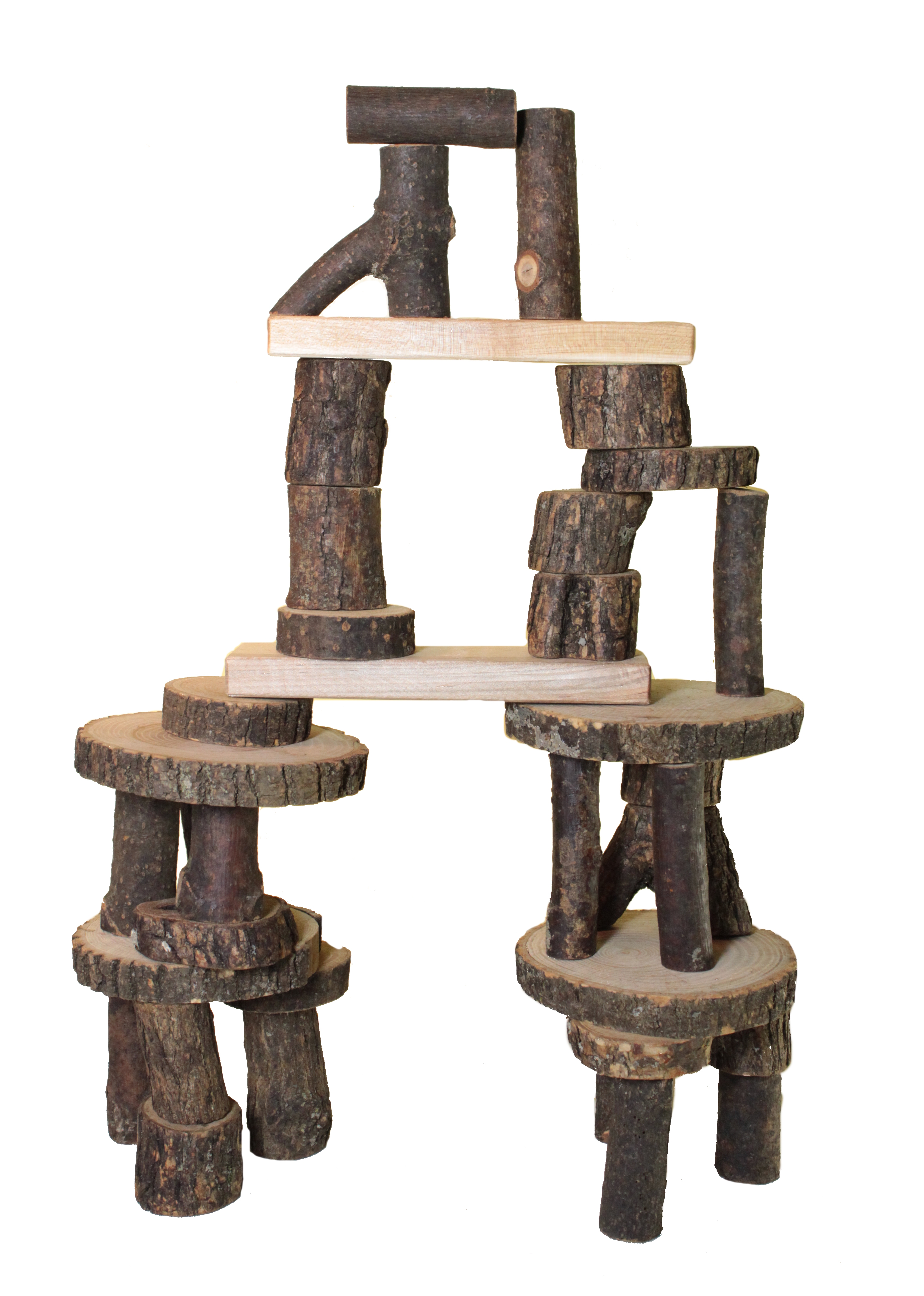
Kelsey: What is Tree Blocks’ mission?
Lander: Tree Blocks’ mission has always been to provide the best educational toys for children while not damaging the environment. That along with my personal mission for the future of the company, provide simple, inherently educational toys for as many children as possible. I feel like there are a lot of electronics veering away from the natural world. So I want to connect as many children back to nature.
Kelsey: Why do you think that kids having access to toys made of natural materials is important?
Lander: Because trees are some of the most important things we have. Without trees converting oxygen we wouldn’t have life. So being able to identify a piece of wood, and have an association with it being something that helped you grow as a child, is building that reverence in your mind. I like to think building those connections at a young age poises people to care about the environment for the rest of their lives. I know it did for me.
Kelsey: Tree Blocks is known for sourcing sustainable wood. Can you explain exactly what makes a wood source sustainable?
Lander: There are a couple of places that we source wood. We get a lot of our fresh wood from Vietnam where laws are in place to ensure all wood harvesting is done sustainably. They grow forests intended for lumber that are constantly being replenished at a rate that allows the ecosystem to recover. We also use a lot of scrap wood. I don’t necessarily want to call it trash, but we do take a lot of what would become trash otherwise and turn it into beautiful, educational toys. Even the paper industry doesn’t use end limbs and we can turn them into craft rounds, dolls, blocks or whatever we need them for. Tree trimmers strip away bark and throw it away when making boards. My dad took those scraps and crafted a castle out of them. The Amish factory we employ collects fallen down trees by horse. Basically we don’t ever cut down live trees unless they are being harvested in a responsible, sustainable way.
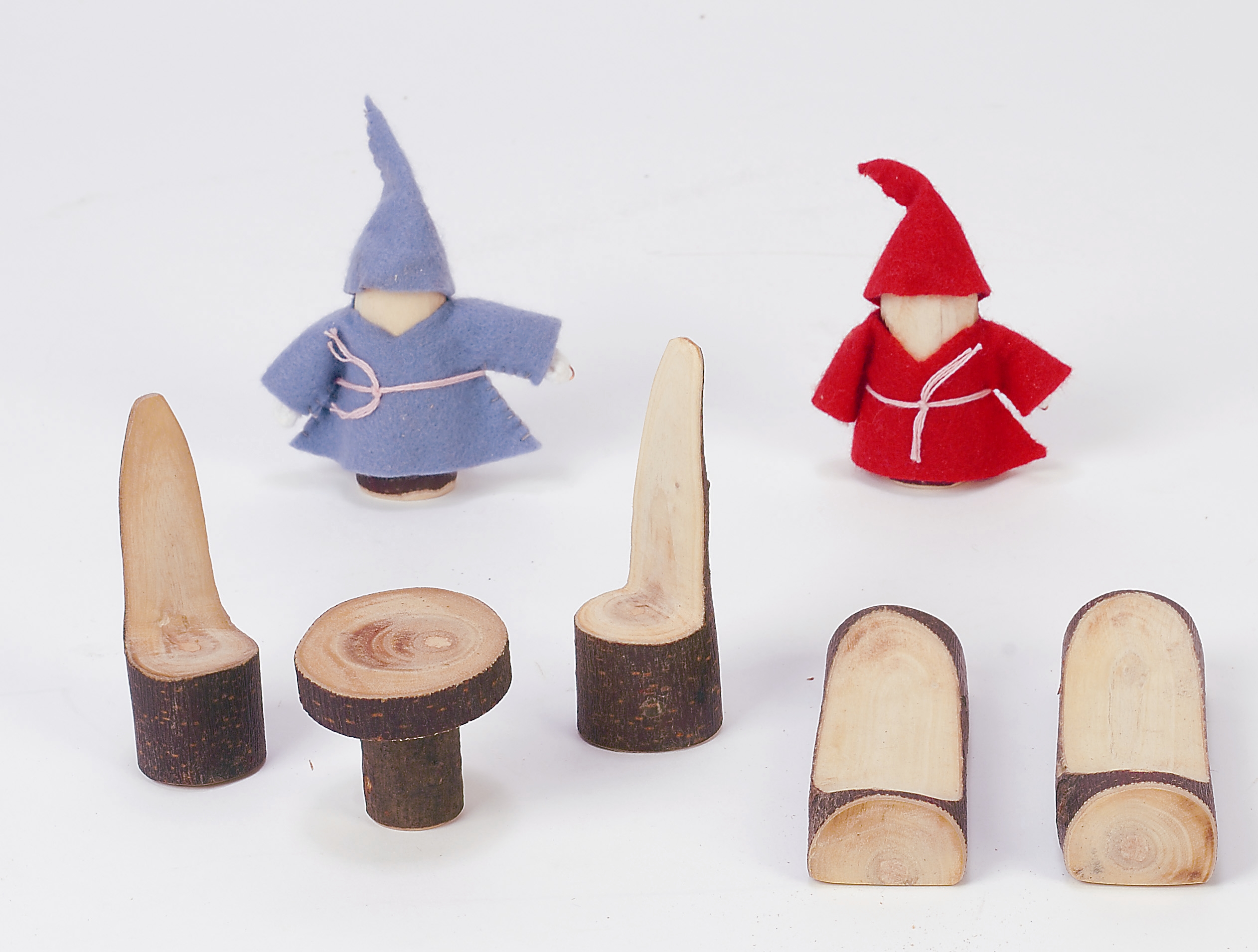
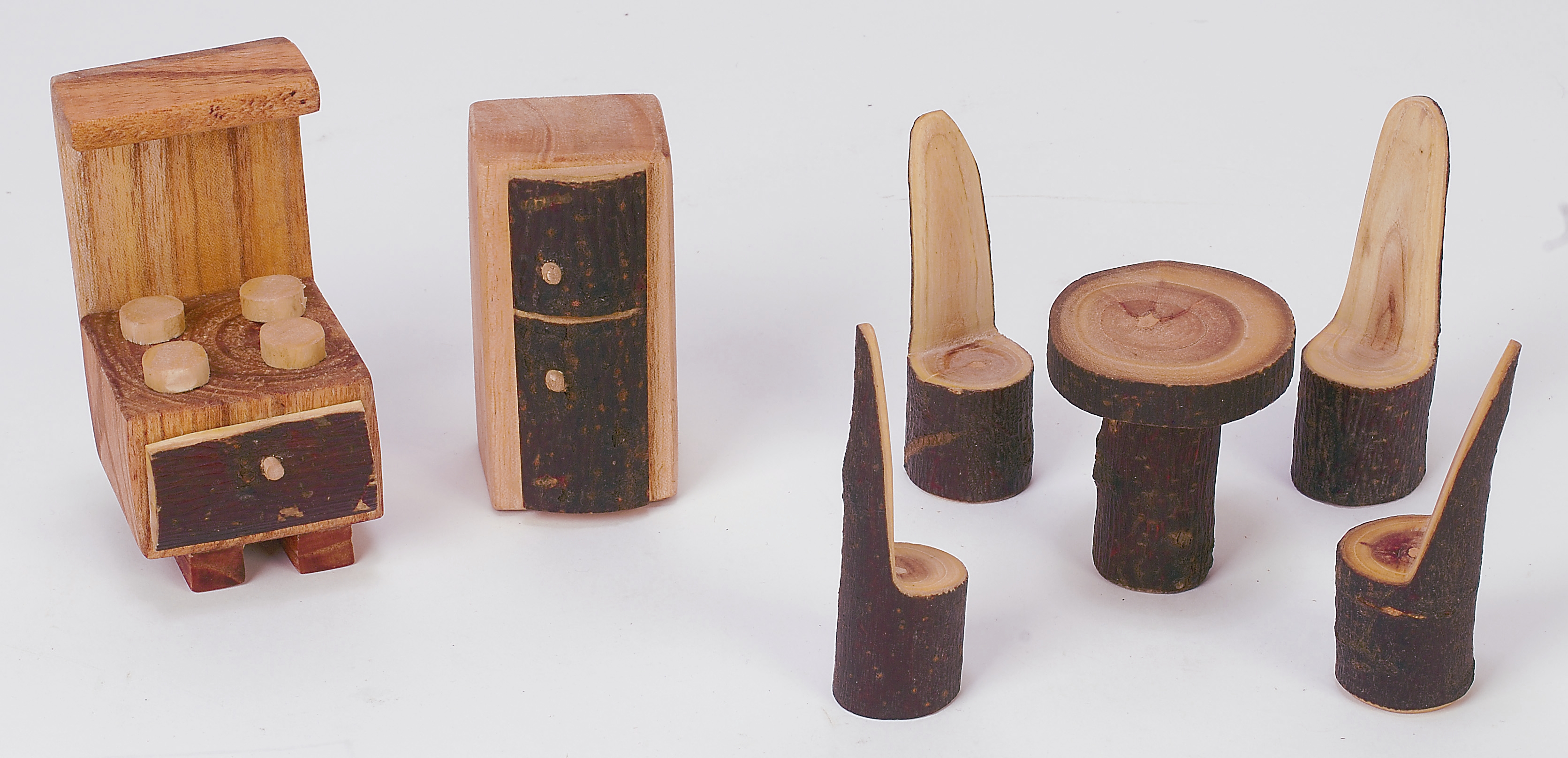
Kelsey: Will you tell me a little bit about the Amish factory you contract?
Lander: Yeah, absolutely. My dad was contracting a factoring in Poland, but it got so expensive he wasn’t going to be able to stay in business. He wasn’t sure what his next move would be, because it was really important to him to continue to contract factories that treat their employees well. A really important man in the toy world, Mark Levine, was a good friend of my father’s and linked him up with an Amish community in Wisconsin and a Vietnamese factory we also currently do business with. So this community in Wisconsin has a really cute cabinet shop and their production is amazing. I mean they crank out cabinets and furniture. So my dad asked them if they would be willing to make Tree Blocks. He taught them how to make Tree Blocks and helped them figure out how they could make small modifications to their tools to help them make the toys. So basically they make cabinets and when they get a Tree Blocks order they switch around everything and crank it out. Our warehouse is only 10 miles from there so the products, at least on the production side, don’t have to travel far.
There was a long process of getting to know them. The community is very tight knit. If you want to do business there you have to talk to who you want to do business with, then talk to the elders of the community. Then they have to make sure you have a good business and there is nothing sketchy going on. They make sure that everyone will be treated fairly and no one will be able to take advantage of anyone else. It’s really cool actually. They have people in place that really watch the community. Their shop or a friend’s shop had burned down a few years before we were in there and the whole community came together to rebuild it. Then the owner slowly payed back the community. It’s a really cool system.
I’ve met them a few times and it’s always been really great. They use machines that are hundreds of years old made back when Chicago steel was made to never break. It all runs on two gallons of diesel gas a day. No electricity. It’s really amazing. They are so smart and industrious.
To produce in the USA is astronomically expensive for a small business, but through them we are able to keep a lot of our labor in the country. We have a mutual trust based off of the honor system. When they need more money for production costs or anything Tree Blocks makes sure we give it to them and in turn they give us really high quality products. My dad made some really fruitful, mutually beneficial relationships with truly beautiful communities while he was alive.
Kelsey: Will you talk about the Vietnamese factory?
Lander: My father visited there often, but I’ve never been. I plan to go in the next couple of years, but it’s a big expense for a small company. I have a person watching over the factory, and he communicates with my business manager and me often about conditions and any other business concerns. What I do know now is that someone working there makes 2 to 3 times the amount they would working an average factory job, which is really great. It is also a small group of workers so everyone can be attended to.
Kelsey: Do you think it is important to give jobs to people in third would countries from an ethical standpoint?
Lander: With the reality that we live in today, yes. My company can afford to pay these employees wages that really improve their lives and are still affordable for us. I think as someone in a more privileged position it is my duty to make sure I am taking care of every person who is a part of the process of keeping Tree Blocks alive. There are a lot of companies and corporations where the distribution of wealth is really skewed, but my dad never wanted it to be that way.
However, in my idealistic perspective I would say, no. I hope that the USA can move towards making American labor feasibly affordable for small businesses. And I hope Vietnam will be able to give its citizens better employment opportunities. Outsourcing labor has a huge cost on the environment as far as transportation goes. We are extremely inefficient internationally, and manufacturing within one’s own country is a huge step towards reducing those effects.
Kelsey: As Tree Blocks grows how do you plan on keeping the company sustainable?
Lander: Keep using scrap wood and continue to take care of all employees involved. I have to ask myself, “How big can the company get without jeopardizing our morals? Are there enough scraps? Would I have to expand to a factory that might not treat their employees ethically?”
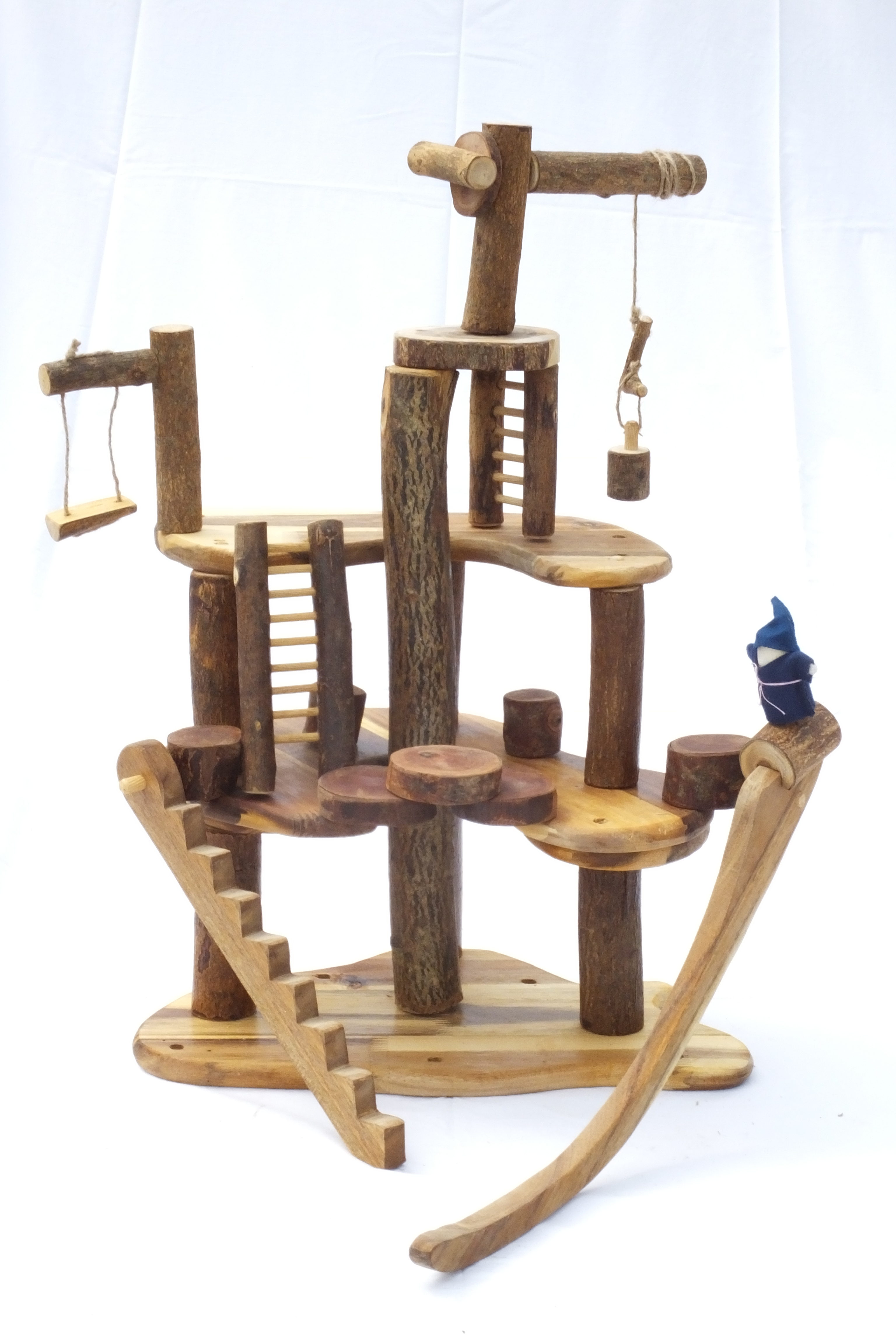
Kelsey: So this is a hypothetical and you already sort of touched on this, but if you got to a point where you could no longer grow your company while still holding onto your sustainable values would you cap the growth?
Lander: Yes. There comes a point where a company is just too big to be sustainable for a myriad of reasons, and I never want to cross that threshold. A goal of mine is to grow and maintain multiple small companies. That way I can continue to grow my success while remaining sustainable and giving more people who may be employed by me a better life.
Kelsey: I think that is a really key thing to understand as a business owner. Exponential growth is not sustainable, and unfortunately our country and much of the world market doesn’t seem to grasp that. Somewhere at some point down the chain of command, someone is going to get the short end of the stick when all you care about is growing profit. And it’s usually the people at the bottom that end up suffering.
Lander: Absolutely, I know I could source my labor cheaper, or sell my company to someone manufacturing plastic toys, but I don’t want that and my father didn’t want that either. It’s a balance.
Kelsey: Did you feel overwhelmed taking over the company in the wake of your father’s death?
Lander: Yeah. It was like a wave crashing over me. I wasn’t really doing anything serious with my life before I got the news he was sick. I moved to Tuscan to be with him in his last months. The plan was him showing me the family business and me running it with him. But he died 10 days after I moved there. It all happened so fast. I moved down there, he gave his friend power of attorney- we turned the company into a LLC from a sole proprietorship so that the company could go to me and not dissolve into a bunch of court fiascoes… and then he died.
Luckily my business manager Liz was able to help. I was also taking over the company after it had been around for 22 years so it was pretty established. I’m still learning the ropes and Liz has been so crucial in helping with the transition. She cares so much about the company [worked with Lander’s father for many years]; I owe a lot to her.
Kelsey: Thank you for opening up about that. A couple more questions. This one’s a little less heavy. What’s your favorite Tree Blocks toy?
Lander: I think my favorite toy is the crash car, and that’s just a very personal thing. I have always loved cars; when I was a kid, man, I was a car nut. I had all the car magazines, all the hot wheels… so I guess when my dad made this car I always had a fond eye for it. I always have one around. I have one on my bedside table that my dad made himself.
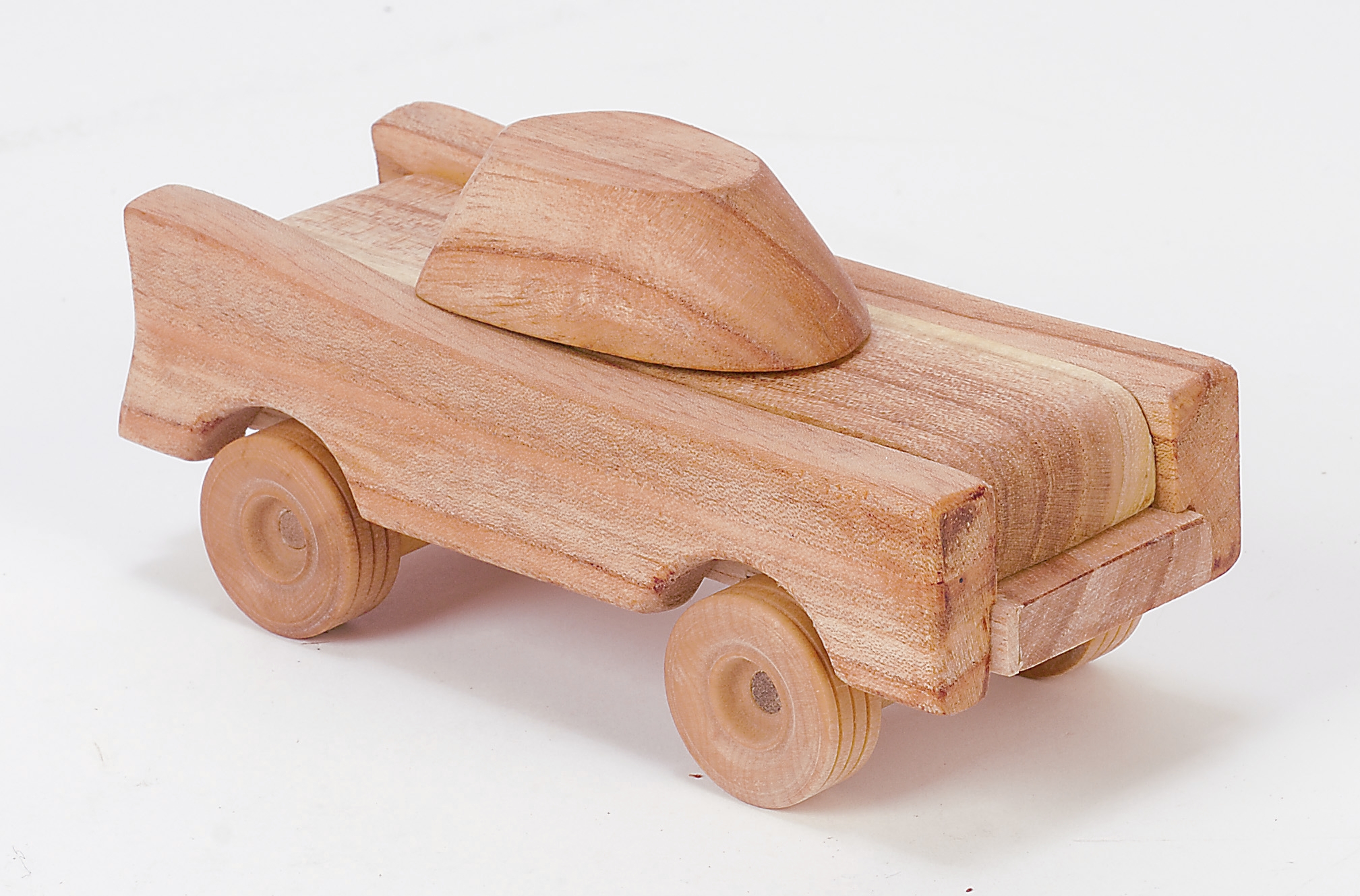
Kelsey: Can you explain what the crash car is?
Lander: Yeah, the crash car is a magnetic puzzle toy. It basically represents an old Cadillac of natural wood. The wheels, the side panels and the chassis all come apart, and the magnets are oriented in such a way that they only come together one way. Originally my dad designed it with children who are blind in mind. Without your eyes to see you can put it together still. It takes a bit longer, but it is really good for your coordination.
Kelsey: What makes Tree Blocks special?
It’s a family owned and operated company, and everyone involved truly believes that they are a part of something that is helping the world. Everybody along the line thinks they are doing something special, that they are doing something unique and feel that they are a part of a beautiful, passive educational revolution. We’re doing something so different than the rest of the toy industry, which is largely plastic or electronic.
Kelsey: Tree Blocks absolutely is a revolution. It’s pushing for a return to production of the past. It’s not a new idea, and yet it must be reintroduced, because we have moved so far from sustainable, ethical models.
Lander: It’s a reminder. It’s a reminder of what I feel is important. Here you and I are, surrounded by redwood trees, doing this right now. I think it’s important to be around nature. To support it, to remember it, to respect it and to cherish it. My dad created something that parents and kids can play with for 5-10 years of their upbringing and then pass on to others. Something that lasts and educates. If it wasn’t a company this special that I had inherited I probably would have sold it. It’s special.
Kelsey: Is there anything else you want people to know about Tree Blocks?
Lander: I’d like it to be known that Tree Blocks is and was my dad. He was the reason the company was built. He designed every toy. He just loved being in the garage making toys for kids. He created his freedom with something that he loved to do… and mine. He created my freedom as well. That’s pretty amazing.
Kelsey: Thank you for letting me interview you and thank you for your willingness to talk about such personal things.
Lander: Yeah, thank you. It was fun.
WRAP UP:
Well that’s it for today! If you want to learn more about Tree Blocks or order one of there toys check out their website here! https://www.treeblocks.com/
If you want to learn more about sustainability and running an eco-friendly home check out my interview with the founder of the Go Green Initiative or check out any of the many other resources on Get Cultured Kitchen such as this interview on sustainable fishing or this interview about what it takes to run a sustainable restaurant. Or perhaps an article on how to live in balance with Mother Earth, spiritually and practically.
Thanks for reading everyone! I look forward to hearing from you; have a spectacular week!

